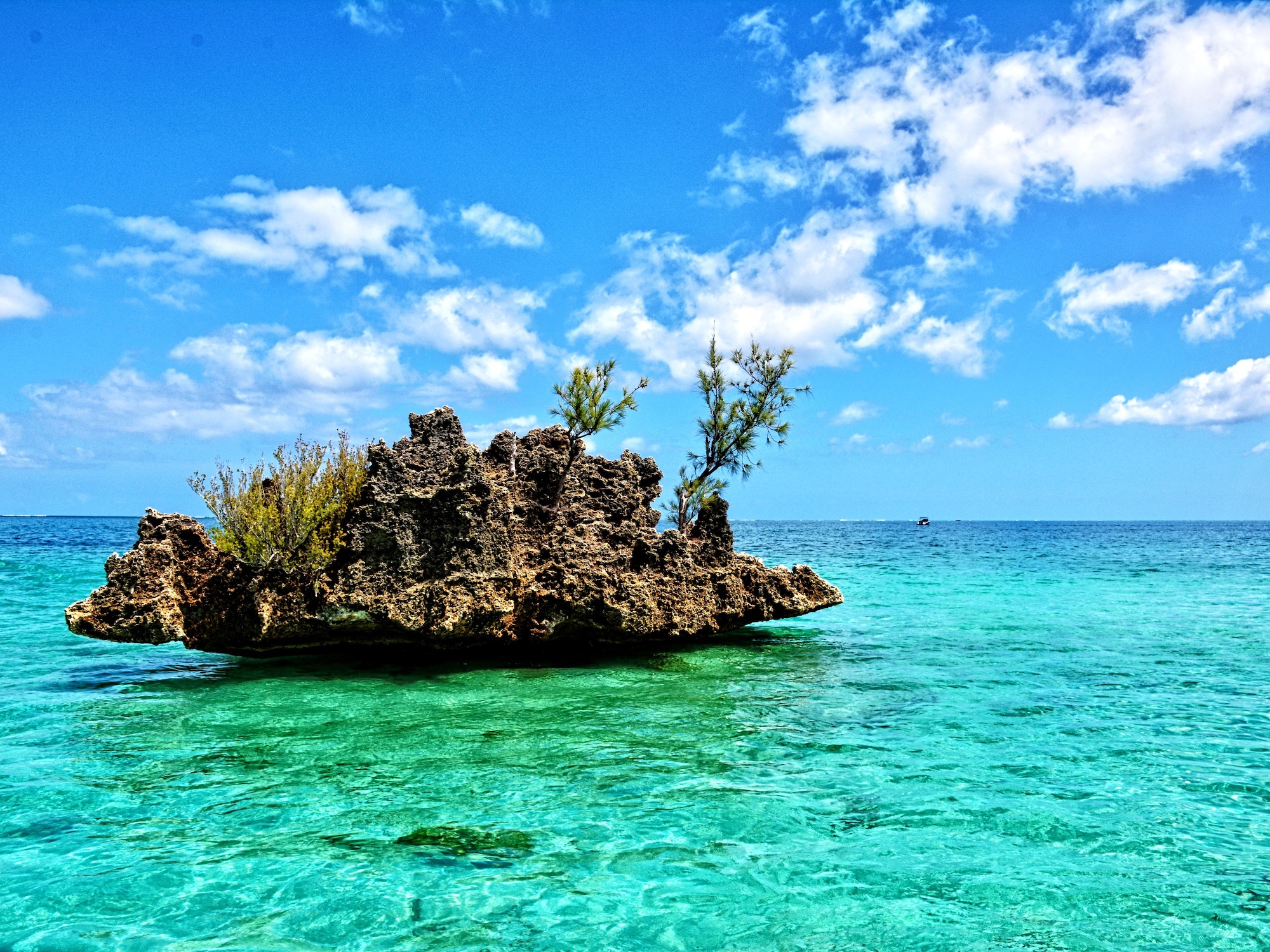

When a huge freighter aground on the coast of Mauritius cracked open last Thursday, August 6, David Sauvage took immediate action. He called up his friends and team members from Rezistans ek Alternativ, a local group of environmental and political activists, and got to work.
The born and bred Mauritian, who is a software engineer by day, knew that they could not wait for a government-run clean up. After all, the Japanese carrier ship MV Wakashio had been stuck sitting on their reefs since July 25. Sauvage and his team worked through Thursday night, using plastic bottles, sugarcane leaves, and recycled construction materials to construct DIY oil booms, floating barriers that can help collect and contain spilt fuel. They deployed their homemade booms on Friday morning, and put out an open call to the community to join them in their efforts.
“Very quickly we had thousands of people helping us along the southeast coast,” says Sauvage. “Hope is found in the people of Mauritius. All kinds of different people came to join our open factory of volunteers. We spend nights and days together now working on cleaning the oil.”
More than 1,000 tonnes of black, slick oil have spilled into the island nation’s waters off the coast of Pointe d’Esny, near a marine park. Even after about 500 tonnes were pumped out via helicopter, the freighter still holds about 2,000 more tonnes of oil that needs to be pumped out immediately, before the ship breaks and leaks any further. But the oil is already creeping up the coast.
“There’s no doubt that the ecological impacts and environmental impacts are massive,” says Yuvan Beejadhur, a Mauritian and the leader of EnForce Maurice!, a local citizen-led movement for sustainability. This huge swath of coastline will be polluted for years, if not decades, Beejadhur says—the coral, crabs, birds, fishes, and people will all suffer for it. “We’re talking about 20 kilometers of dark beaches. It’s shocking and disturbing.”
The Mauritian government declared a state of emergency on August 7, 13 days after the ship first ran aground. Prime Minister Pravind Jugnaut appealed to the French and Japanese governments to assist with the spill, and told the BBC that the small island nation did not have “the skills and expertise to refloat stranded ships.”
Even with the government waiting to defer to outside expertise, Beejadhur says that all of this action has been much too slow. “12 days is a lifetime in these kinds of incidents.” Even before the ship broke open, he says, there should have been plans in place to remove the oil and preemptively protect Mauritius’ valuable coastal environment. Now, because of this spill, everyone will be affected, he says—the fishermen will be impacted economically, the community will have to breathe in those fumes, and all of this piles on top of the COVID-19 pandemic.
France has since sent military aircrafts with pollution control equipment, and Japan sent a six-person team of experts to help France. Meanwhile, the Mauritius police obtained a warrant to investigate the ship’s log book and determine the root of the collision.
Satellite tracking shows that the MV Wakashio entered Mauritius national waters on July 23, almost 48 hours prior to hitting the reef. Not only that, but the ship had actually been on a collision course with Mauritius for several days prior to grounding. A huge freighter colliding into a country like this is entirely preventable, so this incident raises several questions: The government should have been on alert as soon as this ship entered Mauritian waters, says Beejadhur, but why was no one paying attention? Why didn’t anyone see the ship coming, he asks, and how could those on board have failed to see that it was going to hit us?
This is especially frustrating since this has happened before, says Sauvage, referring to a similar ship grounding from 2016. Their volunteer efforts mobilized quickly and are making an impact, but he says they are no replacement for proper official action.
“We fight to protect our commons: the sand dunes, lagoons, reefs, and wetlands,” Sauvage says. “It is amazing to see all people banding together, but it’s so bad…I can’t describe it. We are sad and we are angry.”
